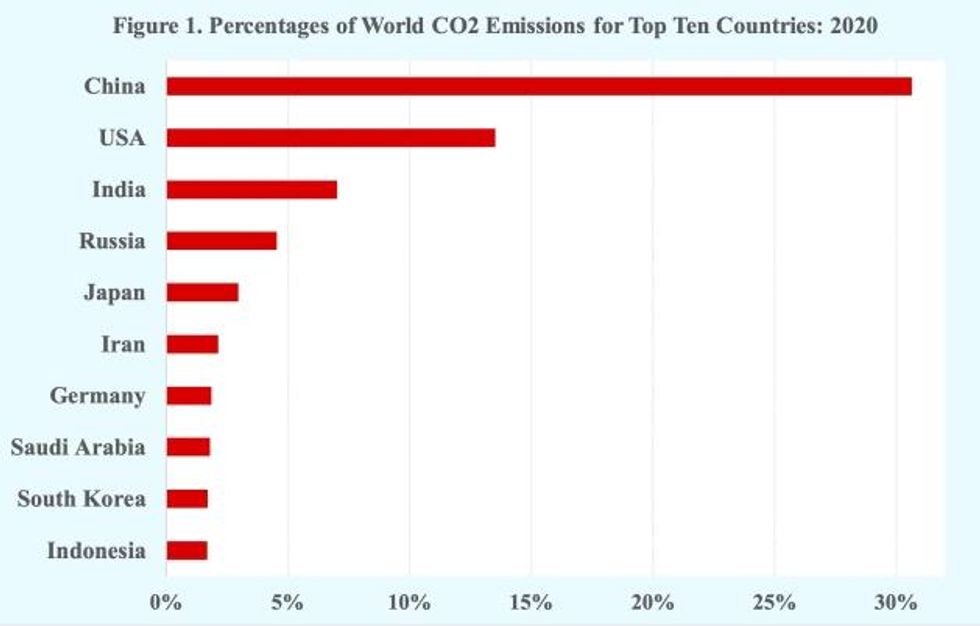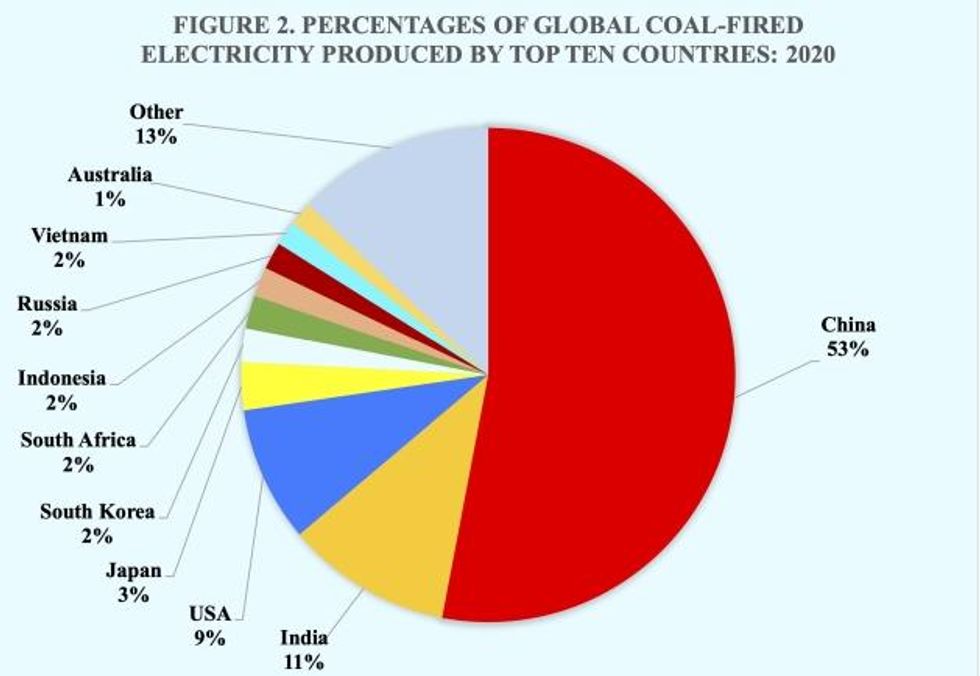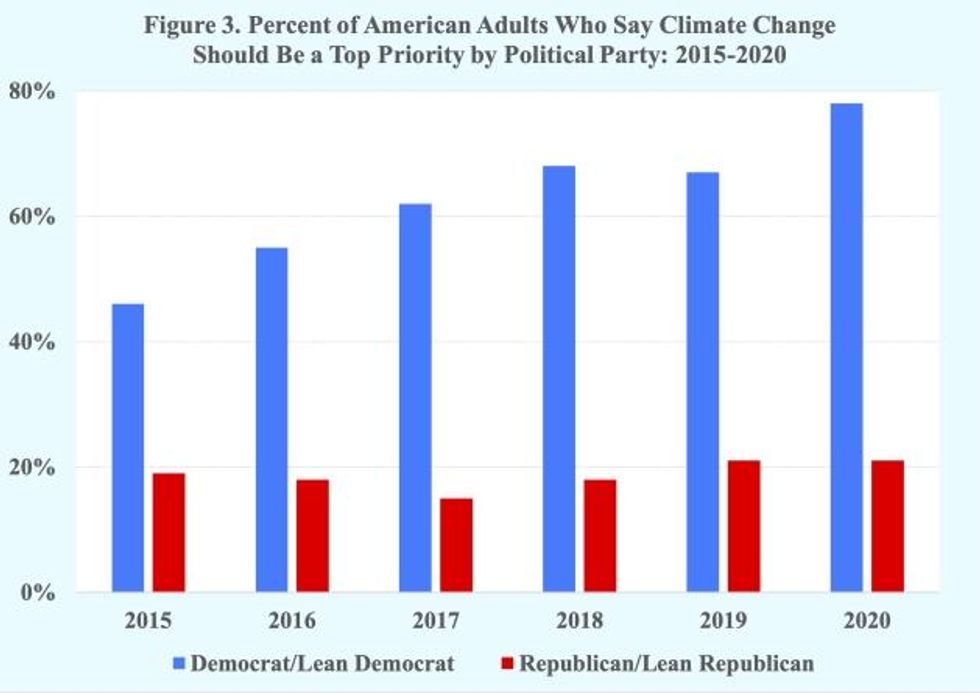While more than a half century ago the Twist was the craze in dance halls globally, today the Climate Change Shuffle is the craze in government halls and conference sites worldwide as officials dance around the dangers of climate change.
The first step in the Climate Change Shuffle is a straightforward maneuver: deny climate change. With feet solidly on the floor, confidently dismiss any scientific consensus on climate change and global warming, including it is caused by human activities. Deny that climate change is a threat to humanity and health of the planet as long as possible (Table 1).

Source: Author's composition.
The second step in the Climate Change Shuffle, which is highly popular and easily done, is the delay. With body swaying gently from left to right, emphasize that the true answers to environmental issues are economic growth, advanced technologies, and human ingenuity, all of which will need some time and resources. Lean forward proposing the establishment of commissions to produce lengthy technical reports and continue to delay as long as possible.
Until governments are fully committed to taking the needed actions to address climate change, which does not appear likely any time soon, government officials will continue to dance the Climate Change Shuffle.
The third and final step in the Climate Change Shuffle, which should be performed effortlessly without movement, is to do nothing. Simply remain still, don't take any steps forward and let time slowly pass waltz by as long as possible. Climate change will likely soon be forgotten, displaced by something more immediate, such as gas prices, a sex scandal, or a military invasion.
Mounting scientific evidence, including the recent Sixth Assessment Report of International Panel on Climate Change (IPCC), indicates that global warming is reshaping the world more rapidly and severely than was known several years ago. Nevertheless, governments, especially the major emitters of greenhouse gases, continue dancing the Climate Change Shuffle.
The top ten emitters of greenhouse gases account for two-thirds of the world's CO2 emissions. Far in first place is China, which is responsible for about 30 percent of the world's CO2 emissions. In a distant second place is the United States at 14 percent, followed by India at 7 percent and Russia at 5 percent (Figure 1).

Source: Statista.
Environmental scientists, naturalists, and concerned citizens, including young activists, worldwide have warned that human-induced climate change is causing dangerous and widespread disruption in nature and affecting the lives of billions of people and calling for needed action. Ecosystems and populations least able to cope are expected to be hardest hit by the consequences of climate change.
Also, thousands of scientists have warned governments that the future habitability of planet earth depends on immediate, large-scale action in no less than six critical and interrelated areas: energy, short-lived pollutants, nature, food, economy, and population.
Their recommended actions include limiting the burning of fossil fuels, restoring ecosystems, moving to plant-based diets, curtailing consumption or degrowth, and stabilizing world population.
However, most of the recommended actions are largely unappealing to governments and their constituents. Transitioning from burning fossil fuels to renewable energy, for example, is considered a difficult task. Global greenhouse gas emissions are broadly from energy, agriculture, industry, and waste, with almost three-quarters from energy consumption.
The alternatives to fossil fuels are not readily available to meet the rising global demand for electricity. Fossil fuels account about two-thirds of global electricity generation, with coal, natural gas, and oil contributing 38, 28 and 3 percent, respectively versus renewables contributing 9 percent.
Some progress has recently been achieved moving from meat to a plant-based diet. However, curtailing consumption, or shrinking the economy, is not likely to be embraced by most populations any time soon.
Also, attempts to stabilize populations are anathema to most governments, businesses, and many others. They consider demographic growth essential for economic growth, political power, and national identity. Consequently, rather than stabilization, world population is expected to increase from 8 billion today to 10 billion by around mid-century.
When confronted by the overwhelming evidence of climate change, governments that have a major impact on global warming glide to the Shuffle's delay step. As witnessed at the disappointing Glasgow climate change summit (COP26) last November, many countries are simply not prepared to make firm commitments on needed actions with timetables.
An important reason why many governments perform the Climate Change Shuffle is the demand for electricity and the reliance on coal-fired power stations to meet that rising demand. The top four countries, namely, China, India, the United States, and Japan, were responsible for 76 percent of the world's coal-fired electricity in 2020 (Figure 2).

Source: EMBER.
With its 1,110 coal-fired power stations, China alone accounted for approximately 53 percent of the world's coal-fired electricity in 2020 and those power stations provided 61 percent of China's electricity. Following China but at a considerably lower level is India, which is responsible for 14 percent of the world's coal-fired electricity with its coal-fired power stations providing 71 percent of India's electricity.
In third and fourth place are the United States and Japan, which accounted for 11 and 9 percent, respectively of the world's coal-fired electricity in 2020. However, in contrast to China and India, the contributions of the coal-fired power stations to domestic electricity consumption in the U.S. and Japan are substantially less, 19 and 29 percent, respectively.
Another important reason why some governments continue doing the Shuffle is because climate change has become a highly partisan issue. With climate change becoming a contentious issue contributing to political paralysis, few elected governments are able to adopt the necessary legislation and implement the needed actions to address climate change.
In the United States, for example, 139 elected officials in the 117th Congress continue to deny the scientific consensus of human-caused climate change. Also, Democratic and Republican voters in the U.S. are far apart in their views regarding climate change.
Whereas 78 percent of Democrats said climate change should be a top priority in 2020, 21 percent of Republicans said it should be. Moreover, the gap between them has widened over the past several years, with increasing proportions of Democrats saying climate change should be a top priority (Figure 3).

Source: Pew Research Center.
When faced with the unequivocal scientific evidence about climate change and the lack of needed actions, some observers, organizations, and funds have increased their efforts to urge governments to adopt the needed climate change policies.
However, others, including many students, have become incredibly worried by years of empty promises by political leaders and are pessimistic about the outlook for future.
They note that a quarter century ago when world population was nearly 6 billion, government leaders gathered in Kyoto, Japan, and agreed to curb greenhouse emissions. Seven years ago, when world population had reached more than 7 billion, governments adopted the Paris Agreement's vision of holding global warming to 1.5 degrees. And today with world population at 8 billion and expected to reach 9 billion in 15 years, few nations are living up to their commitments.
Also, others have become fatalistic about global warming as they witness a rapidly closing window to secure a livable future as governments dance the Climate Change Shuffle. Additional scientific studies, they feel, will make little difference in the near certain outcomes. They are convinced that governments will not be able to limit global warming to 1.5 degrees. With direct and clear language, many have simply concluded: "we're screwed."
In sum, whether one is optimistic, pessimistic, fatalistic, or indifferent regarding climate change and the responses of governments, three conclusions seem warranted.
First, the widely reported scientific evidence and findings of published reports on human-induced climate change and its far-reaching effects worldwide are clear, unequivocal, indisputable, and distressing.
Second, countries will continue to experience the consequences of climate change with serious disruptions to the planet's natural environment and severe adverse effects on human populations, including flooding, droughts, heat waves, shortages of water and food, warming oceans, storms, rising sea levels, wildfires, and melting glaciers and polar ice caps.
Third, until governments are fully committed to taking the needed actions to address climate change, which does not appear likely any time soon, government officials will continue to dance the Climate Change Shuffle, i.e., deny, delay, and do nothing.




